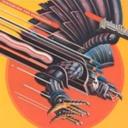Yahoo Answers is shutting down on May 4th, 2021 (Eastern Time) and the Yahoo Answers website is now in read-only mode. There will be no changes to other Yahoo properties or services, or your Yahoo account. You can find more information about the Yahoo Answers shutdown and how to download your data on this help page.
Trending News
can a room be too moist/humid for musical equipment?
I have terrible dryness in my voice, and boiling water in my kitchen helps. If I were to use an electric burner in my studio to moisten up the air (with boiling water) will this cause too much moisture to collect on my equipment? (condenser mic, laptop, 8-bus mixer).
I want the air to be moist enough for me to record, but I'm worried that boiling water might be too extreme a method by which to accomplish this?
What humidity % is too much for recording equipmunk? Is boiling water going to effect these instruments more than a humidifier spraying a fine mist? Perhaps I could avoid this by boiling the water with everything covered up and then uncover it when the condensation dissipates some?
Thanks yahoo community - once again I'm asking you to come to the rescue!
2 Answers
- ?Lv 77 years agoFavorite Answer
Geez, why mess with pans of water, electric heaters, and guesswork? Just get a room humidifier that'll hold whatever setpoint you prefer.
I don't know about recording equipment specifically, but musical instruments made of wood need 40-50% relative humidity. I've noticed this is also sufficient to prevent static discharges on my computer and other electronics (and helps with dry skin problems on me). It certainly hasn't hurt anything I can think of.
- TimLv 77 years ago
Yes, certainly get a simple room humidifier to solve your problem. A relative humidity of about 50% will solve all your issues and make sure there's no harm done. And yes, you can indeed put too much water in the air. electronics can be very sensitive to that. A proper humidifier is a cheap, reliable fix and should be part of your studio gear from day one.





